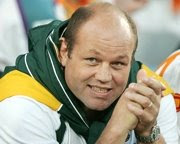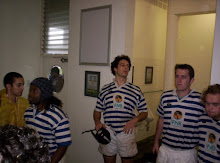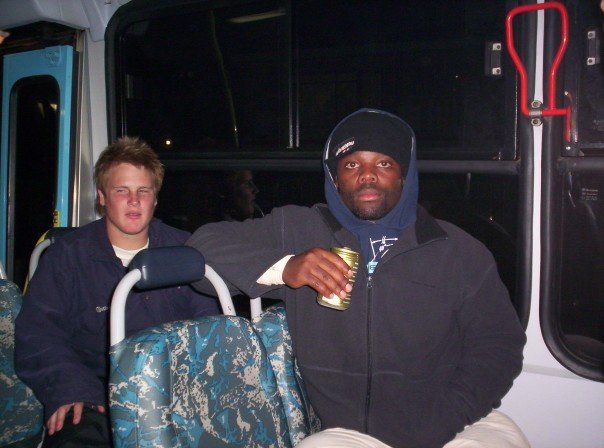After the Stormers lost to the Blues sometime last week, a disappointed head coach, Rassie was asked by a TV interviewer about the team’s errors and were they went wrong?(Andries Bekker…yes Dries….. being the chief perpetrator, wrongfully joined the backline (I sometimes wonder if he’s a lock or outside centre)at least thrice and made knock-ons………Schalk Burger also lost a couple of balls on contact….most that lead to crucial turnovers …and Jean D Villiers missed tackle led to the Blues scoring a try……at some balls were lost from a brilliant attacking position)
With that question in mind, I’m sure Rassie was probably thinking “Can it be my fault a 30+ capped international player drops the ball?”
Of cause he diplomatically deferred to possible tactical errors and how the opposition played better bla bla bla (of coz I compliment him for that, you can’t disgrace your players in public). Some newspapers however (and me included), were quick to question his rugby coaching ability.
My perception is that rugby coaching is about coaching rugby skills. A coach shapes a team’s approach to the scrum and lineout. Each ruck and maul, attacking options will be influenced by the training sessions and feedback over weeks, months and years. As for attacking moves, it’s good to have options, but they can only be executed when the situation allows, hence its not a primary focus.
However, through some limited experience as player and Coach, it is the player who steps over the whitewash of the touchline to play the game, not the Coach.
As a coach, it is hard to watch your team play and make unforced errors. It is easy to pin the blame and quickly to look to either the players or yourself for fault. Fueling you for your next rugby practice. What happens if such unforced errors occur week in week out? As much I don’t blame the coach for these unforced errors, what he does at training or afterwards is crucial. If Andries made a lot of silly errors in one game, or two, he needs to get punished for it. Sit him on the bench in the next game, so that he doesn’t think he’s irreplaceable (LOL!..unfortunately of which he is by the way).
They say the enlightened view is not to blame anybody. Personally I find this hard to do. “Move on, don’t focus on the past, focus on the now” is the mantra that the top players use. Tiger Woods, the world’s best golfer, is a shining example of the removing the blame.
Where does this leave the coach? In the TV interview, he has to say who he blames. To his players, he has to say “let’s play the next game”?
I quite like the approach of Fergie (ManU coach). He says it all in the changing room straight after the game and that’s it. Mind you, I would not like to be on the end of his post match criticism!
What does this have to do with anything?
Well, a “who are the top coaches in the world” debate was evoked yesterday and there were mixed feelings as to “after winning the highly coveted Webb Ellis trophy and the tri-Nations, why the masses still don’t give Jake White due respect”, or “….why guys like John and Vic were regarded as influential “coaches” in the WC winning team…or the stealth in Rassie that makes him highly- (or is it overly-) rated.
So what exactly makes up a good COACH? What are the credentials? Maybe from there, that would make our understanding of good coaches easier.
I know winning is paramount, but how do I differentiate for instance between two winning coaches?Question posed to my well knowledgeable rugby enthusiasts.
Disclaimer: This article is together with any attachments that it may contain, and is intended only for the named addressee(s) of the Rugga-Bloggaz-Forum indicated in the message and may contain legally privileged and/or confidential information. If you have NOT received this message in error, please accept my apologies and kindly inform the COACH of the error.
Thursday, March 19, 2009
Subscribe to:
Post Comments (Atom)





















No comments:
Post a Comment